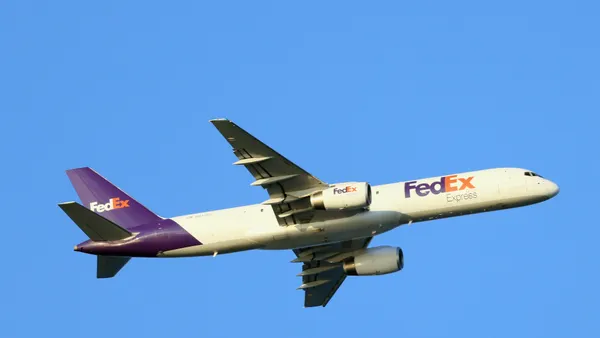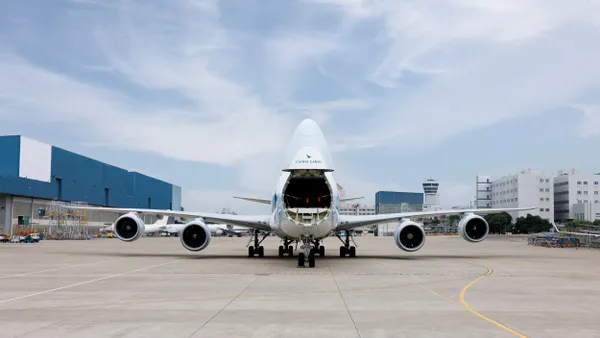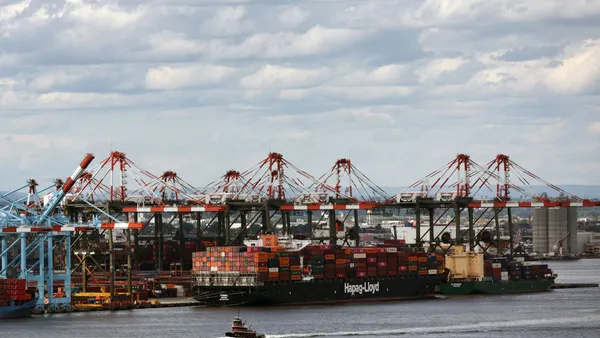Dive Brief:
- American Airlines and United have begun making cargo-only flights between the U.S. and Europe to bolster depressed global airfreight capacity as a result of passenger travel restrictions related to the COVID-19 global pandemic.
- American Airlines flew its first cargo-only flight in more than 36 years March 20 from Dallas to Frankfurt, Germany, in a Boeing 777-300 at full capacity. It was carrying 14 pallets of medical supplies, mail for active U.S. military, electronics and e-commerce packages, according to a press release. United flew its first cargo-only flight from Chicago to Frankfurt March 19 and will continue to fly 40 cargo-only flights from U.S. hubs to key international cities per week using a portion of its Boeing 777 and 787 fleet, according to a press release. Delta, Luftansa and others have either begun flying cargo-only routes using passenger aircraft or are considering doing so.
- Airfreight rates between the U.S. and Frankfurt have more than doubled in the last week from 1.62 euros per kilogram on March 16 to 3.39 euros per kilogram as of Monday, according to the TAC Index. Rates between London and the U.S. have also more than doubled week-over-week (up 128%) from 0.88 pound per kilogram on March 16 to 2.01 pounds per kilogram as of Monday. This follows dramatic price hikes of routes between the U.S. and China.
Dive Insight:
As the number of global consumer flights dwindles, so does a large slice of the global airfreight capacity that existed in the belly of those passenger planes before COVID-19 brought the travel industry to a near halt in some countries. U.S. to EU routes are particularly affected, as belly cargo on passenger flights has taken a much larger share of total cargo capacity in the last 15 years.
Global total scheduled flight capacity was down 12.4% for the week of March 16, according to OAG. But capacity is much lower in countries hit hardest by the virus.

With hundreds of thousands of flights canceled around the world, airlines have hundreds of aircraft available for all-cargo flights, which are still permitted in and out of affected countries, despite passenger travel restrictions.
The International Air Transport Association (IATA) argues the global industry needs support to maintain the current level of airfreight capacity.
"Over 185,000 passenger flights have been cancelled since the end of January in response to government travel restrictions. With this, vital cargo capacity has disappeared when it is most urgently needed in the fight against COVID-19," Alexandre de Juniac, IATA’s director general and CEO, said in a statement. "Governments must take urgent measures to ensure that vital supply lines remain open, efficient and effective."
The Trump administration's stimulus package currently being negotiated by Congress includes a $50 billion bailout for the airline industry.
Additional reporting contributed by Matt Leonard














